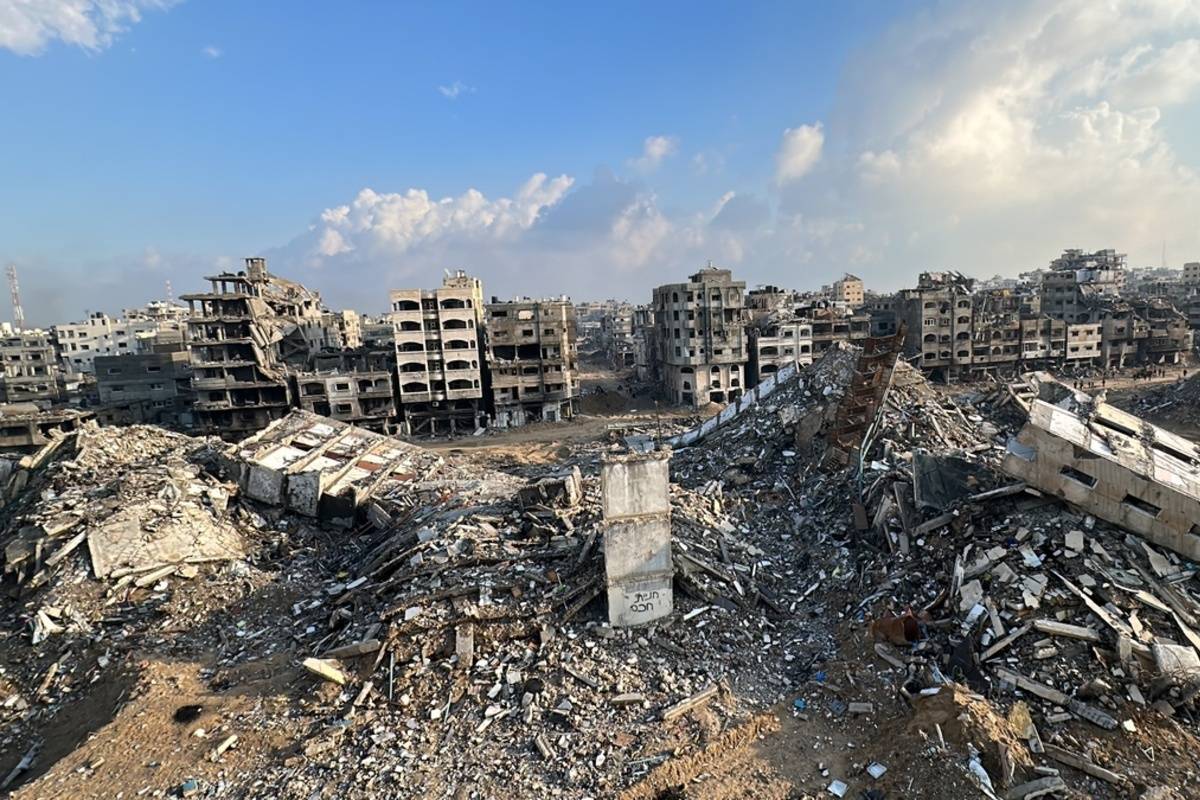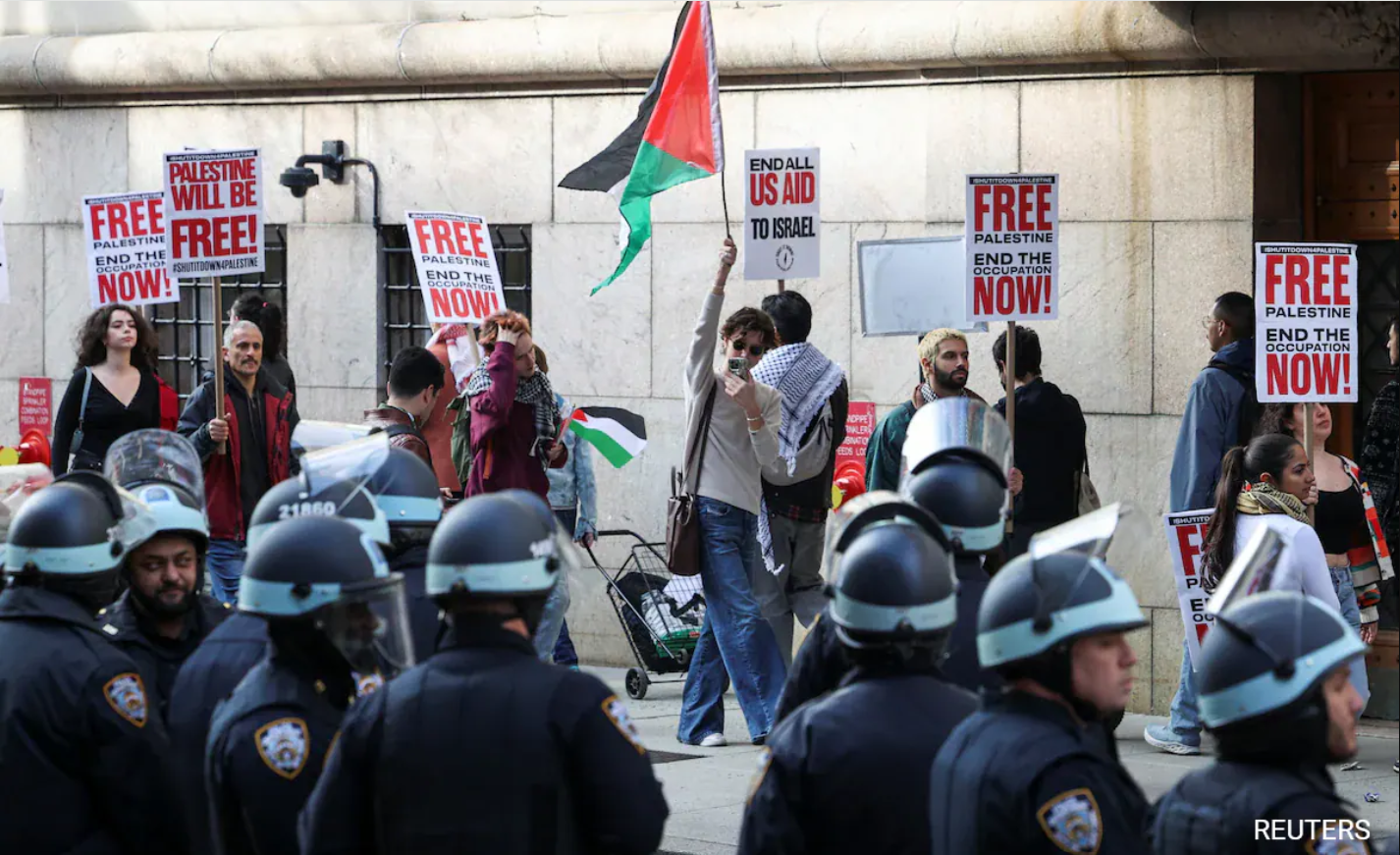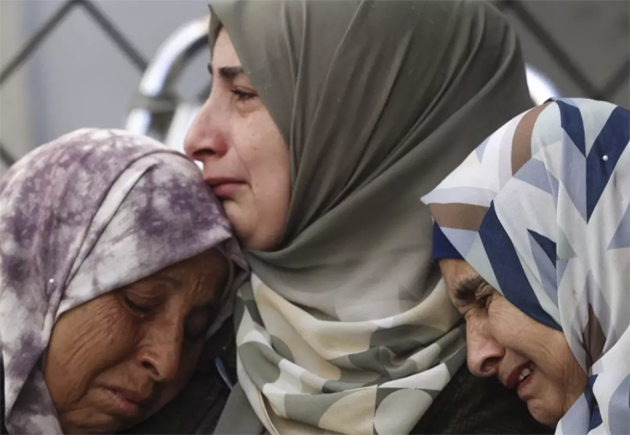Interview with Ambassador Ibrahim Khreisheh - UN, Geneva:
From your experience as the Palestinian ambassador to the UN, how would you assess the UN interaction with the Palestinian problem, especially given the fact that we are not full members of the UN General Assembly?
I am a firm believer that it is extremely important that we continue to work and deal with a major body such as the UN because the moral value of the resolutions put forth by the international community is one of the most important weapons we have. When we refer to anything regarding Palestine, we always anchor it in resolutions of international legitimacy. (Late) President Yasser Arafat used to say, “I am not asking for the moon. I only ask for the implementation of international legitimacy.” These are well known to all: An (Israeli) withdrawal from lands occupied in 1967 including East Jerusalem and a just solution in accordance with UN SC Resolution 194 for the refugees. As such, this moral value is one of our most important weapons for sustainability and continuity in demanding our rights from the international community.
Sometimes, we think the world has dropped everything and is only concerned with the problem of Palestine. This is what it looks like today here in Geneva. But this is only because of Israel’s UPR (Universal Periodic Review) tomorrow (December 4). Otherwise, we are very much on the back burner. Our internal Palestinian situation today has only pushed us back even further into this corner. Therefore, adhering to international law and legitimacy is our main tool, which we must continue to uphold and defend.
Israel often downplays the importance of international legitimacy in terms of the Palestinian question. What do you think are the measures that must be taken to reassert the importance of this legitimacy?
For the Israelis, the most difficult thing for them is to talk about international legitimacy and to talk about a peace process, an agreement or negotiations. I have been part of the negotiations track for a long time. I was a director in Negotiations Affairs Department and as a student I participated in the first youth meeting with Israelis, which was in Stockholm in 1992, even before the Oslo Accords were signed. So I know that the most difficult thing for Israelis is talk logistically and rationally about international legitimacy. And the easiest thing for them is to talk about the Qassam rockets on Sderot. In short, what they want is for this status quo to continue, for the rockets to continue. Any ceasefire or calming of the situation is damaging to Israel. So now, they are fixated on this subject of the rockets. This last round of rockets that were fired on Sderot is being use as a winning card before the world. The problem is convincing those who actually fire the rockets to abandon this whole tactic. Unfortunately, they will not listen.
Tomorrow (at the UPR session) I am going to speak within a framework of logic and rationale. I am going to talk about international and humanitarian law, international conventions and agreements and international legitimacy all of which Israel violates. If someone (in the session) decides to go off with rhetoric about the “murderous Zionist entity” and so on this will make the Europeans side immediately with Israel. But if you come from a standpoint of logic, it makes it more difficult for them. This time, I want everyone in the Council to support us. But this method needs a tremendous amount of effort. However, we have already started this journey with some of our European colleagues and our dialogue now has a different tone. I say to the Europeans, you were the ones that introduced the concept of human rights, not us. That’s fine, we say. We agree, but if the standards of this concept have changed, shouldn’t we at least know about it? If we are talking about international law and international human rights, then as a people under occupation, this applies to us as well and they have all been violated by the (Israeli) occupation authorities.
I often give the example of the fact-finding mission into Beit Hanoun which was ratified in this Council and which commissioned Archbishop Desmund Tutu to go to Beit Hanoun (Gaza Strip). I talked to the Europeans in simple terms. I said you Europeans, through pressure from Israel, cannot acknowledge the fact that 19 people, who were asleep in their homes were liquidated just like that. As a Palestinian, I have always acknowledged the enormous tragedy that befell the Jews during the Holocaust in WWII. However, you cannot acknowledge the killing of these 19 civilians? Then I don’t think there is any chance for us to agree. First acknowledge this fact and then we can talk, because one human being is never of more or less value than any other human being. No one can counter this premise. These people were asleep in their beds and they were bombed and killed. At least admit that (Israel) killed them. Then we can talk.
Today, there really has been an improvement in terms of solidarity with the Palestinians, especially from the Europeans. There are new are conditions that need to be taken advantage of, for example, the change that took place in the United States, which was huge. In Israel as well, there is going to be another change. There is an economic crisis which no one knows the ramifications of. I personally think it is going to create a new world order. There will be new power centers. Even the Jewish financial lobby has been shaken. The Euro-Mediterranean Union is also something we can take advantage of. I believe almost the entire world is convinced that the Palestinian people must have their state. The question is how we can put this sentiment into action. There is an opportunity before the Israelis now but it will not be a very large window of opportunity in terms of time. That is, today there is a group of Palestinians represented in the current Palestinian leadership that is calling for dialogue and negotiations in order to reach a solution. After a while however, if this fails and a solution is not reached and you couple this with the continued frustration of Palestinians in the occupied territories, there will be other powers that will take over the reins of the battle with Israel. If they (Israelis) think this is to their benefit, then they must take the consequences. But we know that it is in Israel’s interest to acknowledge that their security is in realizing our security first. Their security lies in the establishment of our state first. If they reach this point of understanding, then we are more than ready to meet them there.
What do you expect tomorrow at the UPR session?
Of course the Israelis have prepared a report that in no way points to the major disaster called the occupation. How can they not mention they are also an occupying power, one that has an entire people oppressed? How is this not mentioned in the context of humanitarian laws, human rights and the Fourth Geneva Convention and their application to the Palestinian territories? I am going to speak about this - about Jerusalem, the (separation) wall, the settlements, the prisoners. As a Palestinian, I am going to point to all of these issues from the legal aspect.
Tomorrow, I am not going to talk politics. I am going to talk about human rights and human rights laws, the (Fourth) Geneva Convention, the Convention against Torture that Israel is a signatory to. I will speak of these, not politics. But because I live under occupation, my situation is somewhat different (than others) when I refer to all the above.
Do you think the issue of Palestinian human rights has been better represented with this new process?
What I think is that we cannot leave any stone unturned. We need to knock on every possible door and talk in every arena about the suffering of our people and about our rights. This report talks about human rights in Israel. If they see their country as a kind of heaven, that’s fine. But what Israel is doing to our people is a different story. I want to see this image relayed in its true and bitter reality not through a distorted image of Israel. There are enough examples to give if we want. If we do this properly, there is an opportunity here to sway public opinion into pressuring Israel. The main principle which I, and I believe all Palestinians begin with is an end to the occupation. The rest are details. If there were no occupation, there would be no settlements, no wall, no checkpoints. One mistake we as Palestinians have made is to create organizations to fight the wall, to combat the settlements etc. There is no five-star occupation in the world. Of course the occupation is going to take our land, cut down our trees, imprison our people and kill our children. Let our focus and our reference point always be the ending of the occupation. The violations are useful in order to show the world the brutality of this occupation, but most peoples have been under occupation at one point in time and know there is no such thing as a pretty occupation.







